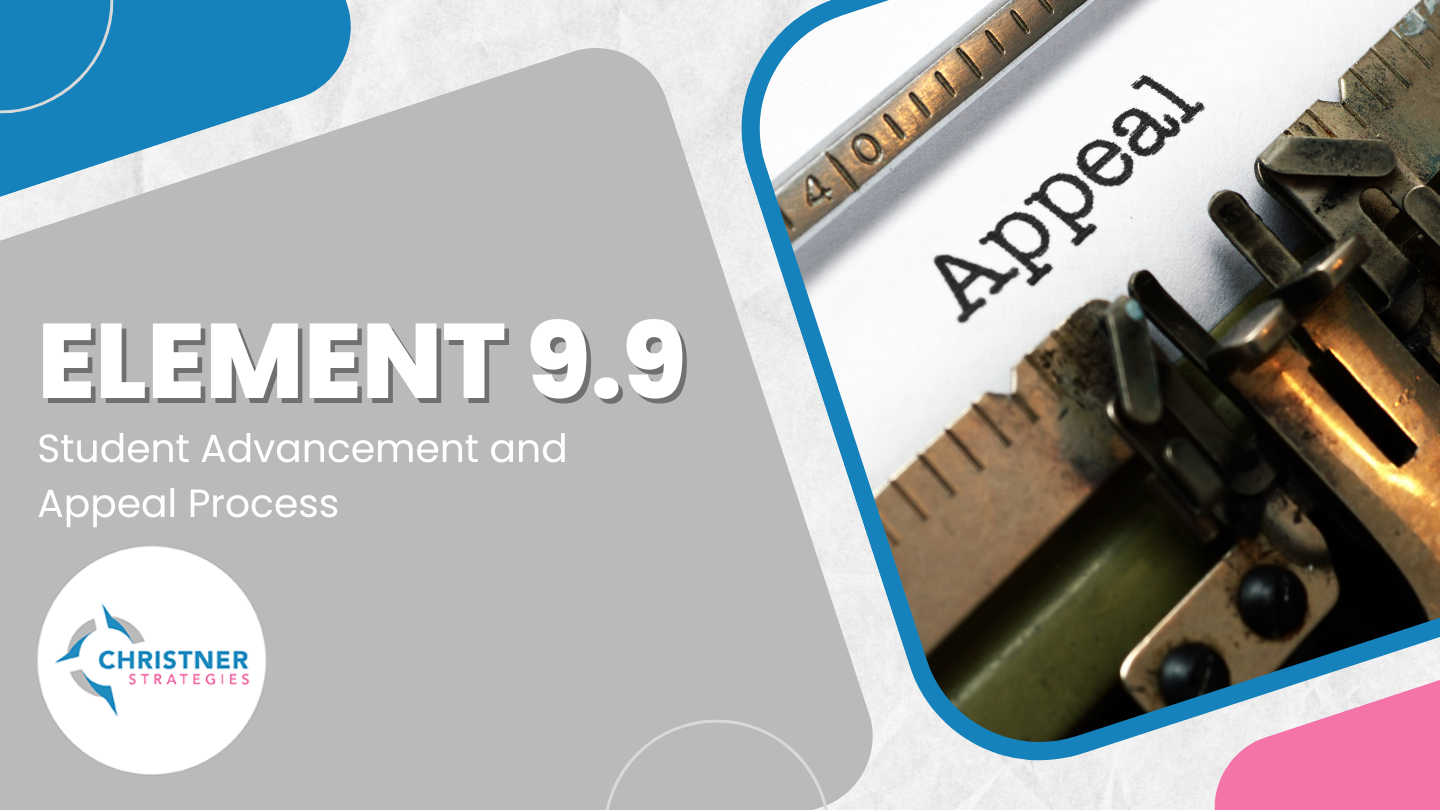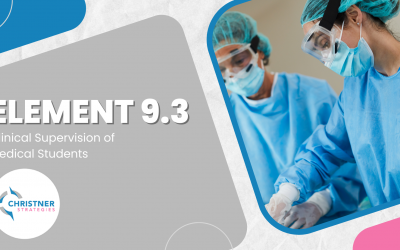LCME Element 9.9 – Student Advancement and Appeal Process
A medical school ensures that the medical education program has a single set of core standards for the advancement and graduation of all medical students across all locations. A subset of medical students may have academic requirements in addition to the core standards if they are enrolled in a parallel curriculum. A medical school ensures that there is a fair and formal process for taking any action that may affect the status of a medical student, including timely notice of the impending action, disclosure of the evidence on which the action would be based, an opportunity for the medical student to respond, and an opportunity to appeal any adverse decision related to advancement, graduation, or dismissal.
Hidden Curriculum
While everyone understands that you need to have a policy that is widely published and widely available to students regarding:
- Advancement in the curriculum (or what makes you non advance..)
- Criteria for graduation and
- Criteria for dismissal- what is of course left unsaid is what will sink you from an LCME perspective.
There are 2 major issues here:
- The idea of double jeopardy – so if your student promotions committee is mostly made up of course/clerkship directors – that is going to be viewed a problem as faculty who have failed students can not vote on subsequent consequences to that failure, and if a student has had a lot of issues – so a lot of your course/clerkship directors sitting at the table have failed the student -NONE of them can be involved in subsequent consequences on adverse action. So how many people will be voting exactly? You may not make quorum.
- The body that gives the adverse action can NOT be the same body that the appeal goes to
- I know – I said 2 issues – but there’s a third -make sure that the student has the right to come before the body giving the adverse action and state their case.
Best Practice
Ensure that all curricular tracks or pathways, like dual degrees, follow the same core academic and graduation standards. For example, students in an MD/MPH program still need to meet the core MD requirements just like their peers in the standard track. Keeping standards consistent helps promote fairness and meets accreditation expectations.
Clearly outline timelines and communication steps when students might face academic adverse actions or possible dismissal. Students should get written notice at least 7 to 10 business days before a promotions committee meeting. This notice should explain the issue clearly and give students a chance to respond. Being transparent and timely makes the process fairer for everyone.
Appeal panels should be made up of people who weren’t involved in the original decision. So, if the Promotions Committee recommends dismissal, the appeal should be handled by a different Dean’s level committee with no overlapping members. This helps keep decisions fair and unbiased.
Make sure student handbooks, school websites, and other communication tools clearly explain promotion and dismissal procedures. Visual tools like FAQs can help make complex policies easier to understand. Also, students should know about support options like academic advising or advocacy available during any review process.
We get asked frequently:
Q: Can you have any course/clerkship directors on your student promotions committee?
A: Yes, you can. Frankly I recommend having one of each (course and clerkship director) but no more than one of each. I think it is helpful to have an actual director so they can give some perspective (ahem – reality check) to other committee members.
Q: Who can the student bring with them for support?
A: Pretty much anyone but a lawyer. If they bring a lawyer, your legal counsel is going to say that they need to be there too. Also – the support person does NOT have to be allowed to speak. I’ve never allowed that.
Continuous Quality Improvement
It’s a good idea for schools to take a fresh look at their promotion and dismissal policies each year to make sure they’re still in line with LCME expectations, and with what students are experiencing. Doing regular audits of sample (de-identified) cases can help confirm that things are being handled fairly and consistently. Training for faculty and committee members on due process, implicit bias, and communication goes a long way, too. And don’t forget to ask for feedback (confidentially) from students who have been through the process, this can highlight areas to improve. Simple tools like tracking logs for student notifications, appeals, and committee membership can also help boost transparency and keep everything on track. A final word/pet peeve.
Student promotions committees have a serious obligation to the public and the institution. It is NOT OK to bend the rules- you are setting a legal precedent and setting your school up for future lawsuits. We can all have compassion for students who have having difficult times, whatever they may be – that is NOT what you should base ANY decisions on. Your decision should be based ONLY on whether they are meeting the academic requirements. It is the school’s responsibility to ensure they are admitting students who can succeed and providing proper academic, health and career counseling. I’ve been doing this a really long time – sometimes students who are dismissed are grateful and relieved. You see that more than you think. So, follow the policies in place – they are there not only for the school – but for the student too.




